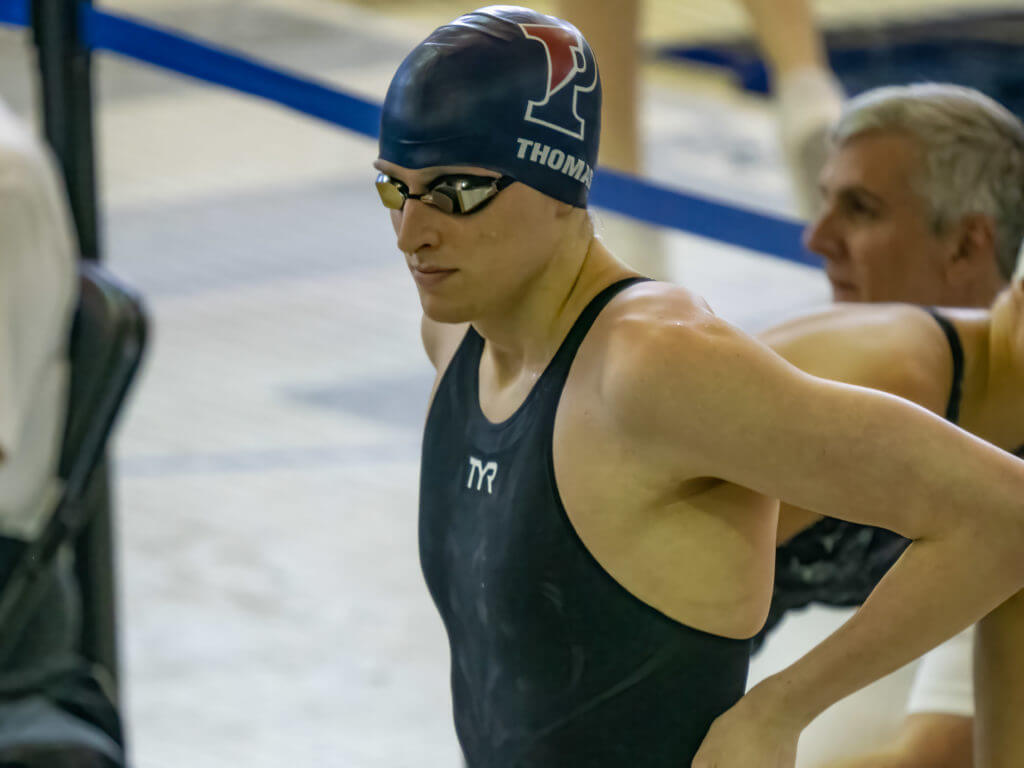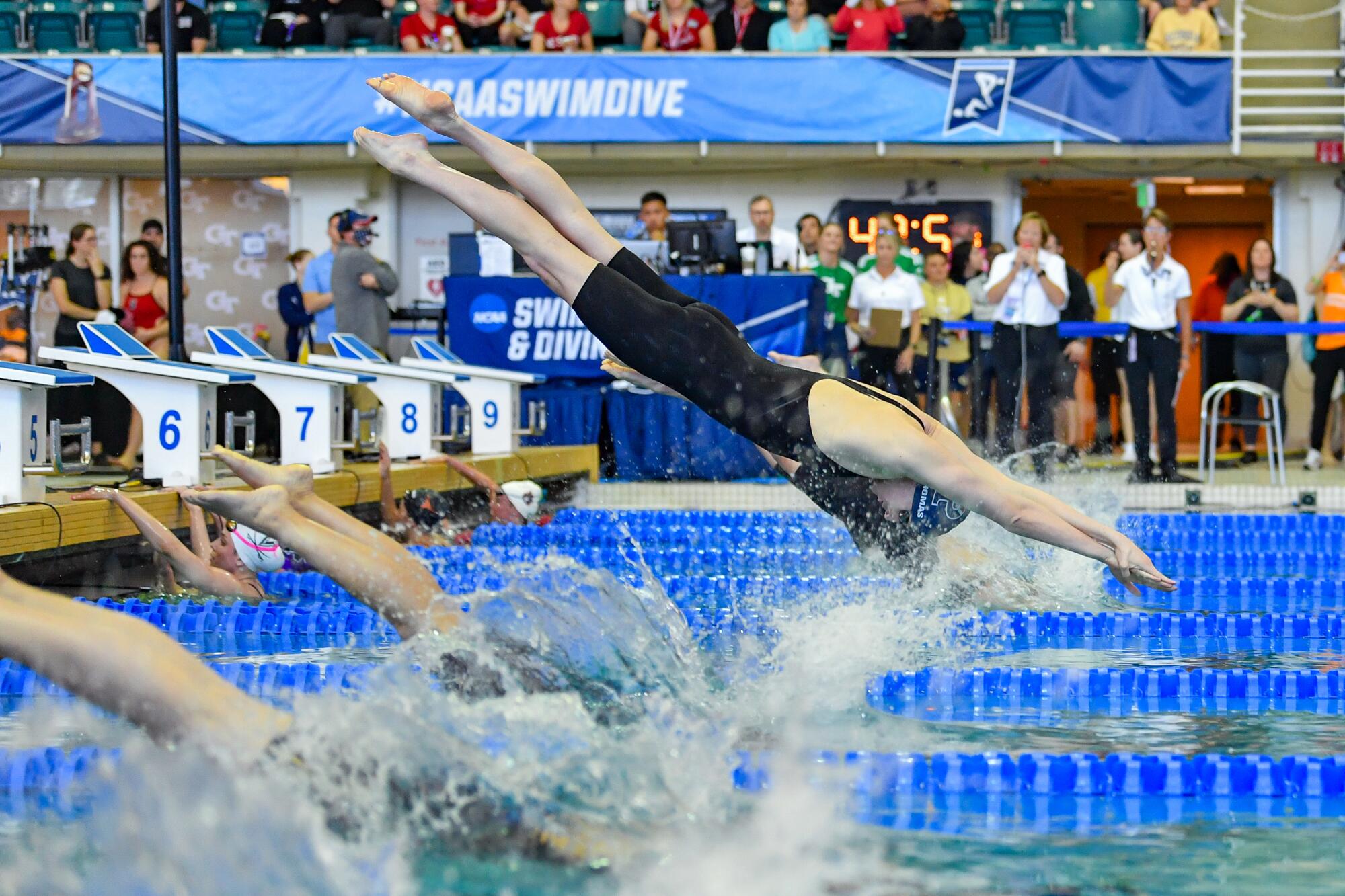BREAKING: Lia Thomas Loses Legal Case – No Chance to Attend Olympics, Big Win for Women’s Sports
In a landmark legal battle that has sent shockwaves through the sports world, Lia Thomas, the transgender swimmer who made headlines for her controversial participation in women’s competitions, has lost her legal case to qualify for the Olympics. This ruling, which has been widely anticipated, has sparked a fierce debate on the fairness of transgender athletes competing in women’s sports. For many, it represents a significant victory for women’s sports and a crucial moment in the ongoing discussion about inclusion and fairness in athletics.
The Legal Battle: What Led to the Court’s Decision?
Lia Thomas, who transitioned from male to female, became a focal point of controversy when she dominated women’s swimming events during her college career at the University of Pennsylvania. Her performance raised questions about the advantages of hormone replacement therapy (HRT) and whether it gave her an unfair edge over cisgender female athletes. Despite following NCAA regulations that allowed her to compete in women’s events after undergoing a year of testosterone suppression, Thomas’s participation sparked widespread debate.

After winning multiple titles and breaking records in women’s swimming, Thomas sought to qualify for the U.S. Olympic team. This move ignited a legal battle, as some argued that her inclusion could undermine the integrity of women’s sports. The case was closely watched, with many arguing that it would set a precedent for future decisions regarding transgender athletes in high-level competitions.
The court ruled against Thomas, citing concerns about fairness and the need to preserve a level playing field for female athletes. This ruling, though controversial, was hailed by many as a win for women’s sports, as it reinforced the notion that biological advantages cannot be overlooked when determining eligibility for women’s competitions.
A Major Victory for Women’s Sports
The ruling has been widely celebrated by advocates for women’s sports, who have long voiced concerns about the potential for unfair competition when transgender women participate in female categories. Critics of Thomas’s inclusion argued that her physical advantages, even after undergoing hormone therapy, could not be fully mitigated, leading to an uneven playing field.
For many in the world of women’s athletics, this legal outcome is seen as a victory in the fight for fairness and equality. They argue that women should be able to compete in a space that takes into account their biological differences without having to face competitors who may have inherent physical advantages due to male puberty. This ruling is viewed as a step toward ensuring that women’s sports remain a safe and equitable space for all female athletes.
The Fallout: What This Means for the Future of Transgender Athletes in Sports
While this decision has been celebrated by some, it has also raised questions about the future of transgender athletes in competitive sports. The ruling signals that there are limits to how much inclusion can be extended to transgender athletes, especially in elite competitions like the Olympics. This decision could have far-reaching implications for the policies governing transgender participation in other sports, potentially setting a precedent for future legal challenges.
Transgender athletes and their advocates have expressed disappointment with the ruling, arguing that it represents a setback in the fight for equality and inclusion. They believe that athletes like Thomas, who have undergone hormone therapy and meet the required regulations, should be allowed to compete without facing additional barriers or restrictions based on their gender identity.
This ruling has reignited the debate about how sports should adapt to an evolving understanding of gender and identity. As the conversation continues, it will be crucial to find a balance that respects both the rights of transgender athletes and the need for fair competition in women’s sports.

Ultimately, the question remains: How can sports ensure that all athletes, regardless of gender, have a fair opportunity to compete? The outcome of Thomas’s legal case is just one piece of a much larger puzzle, and the answer will require careful thought, consideration, and, most importantly, a commitment to fairness for all athletes.
aid After the Ruling
In the wake of the court’s decision, Lia Thomas expressed her disappointment, but also reiterated her commitment to advocating for transgender inclusion in sports. “I believe every athlete deserves the opportunity to compete and succeed, and I will continue to fight for the rights of transgender athletes,” Thomas said in a statement. “This ruling is a setback, but it won’t stop me from pursuing my goals and being a voice for change in sports.”
While Thomas will not have the chance to compete in the Olympics, her fight for transgender rights in sports is far from over. She has pledged to continue working with advocacy groups and pushing for reforms that will allow transgender athletes to compete fairly in all sports.
The Ripple Effect: What’s Next for Women’s Sports?
The ruling in Thomas’s case is just one chapter in the broader conversation about gender, fairness, and inclusion in sports. As more transgender athletes seek to compete in women’s sports, the legal and ethical questions surrounding their participation will continue to evolve.
For women’s sports, this ruling provides a temporary sense of stability, ensuring that female athletes will continue to compete in spaces where their biological advantages are not overshadowed by those of transgender women. However, the conversation is far from over. As society’s understanding of gender and identity progresses, it is likely that more legal battles will emerge, forcing sports organizations to reevaluate their policies and adapt to changing norms.






